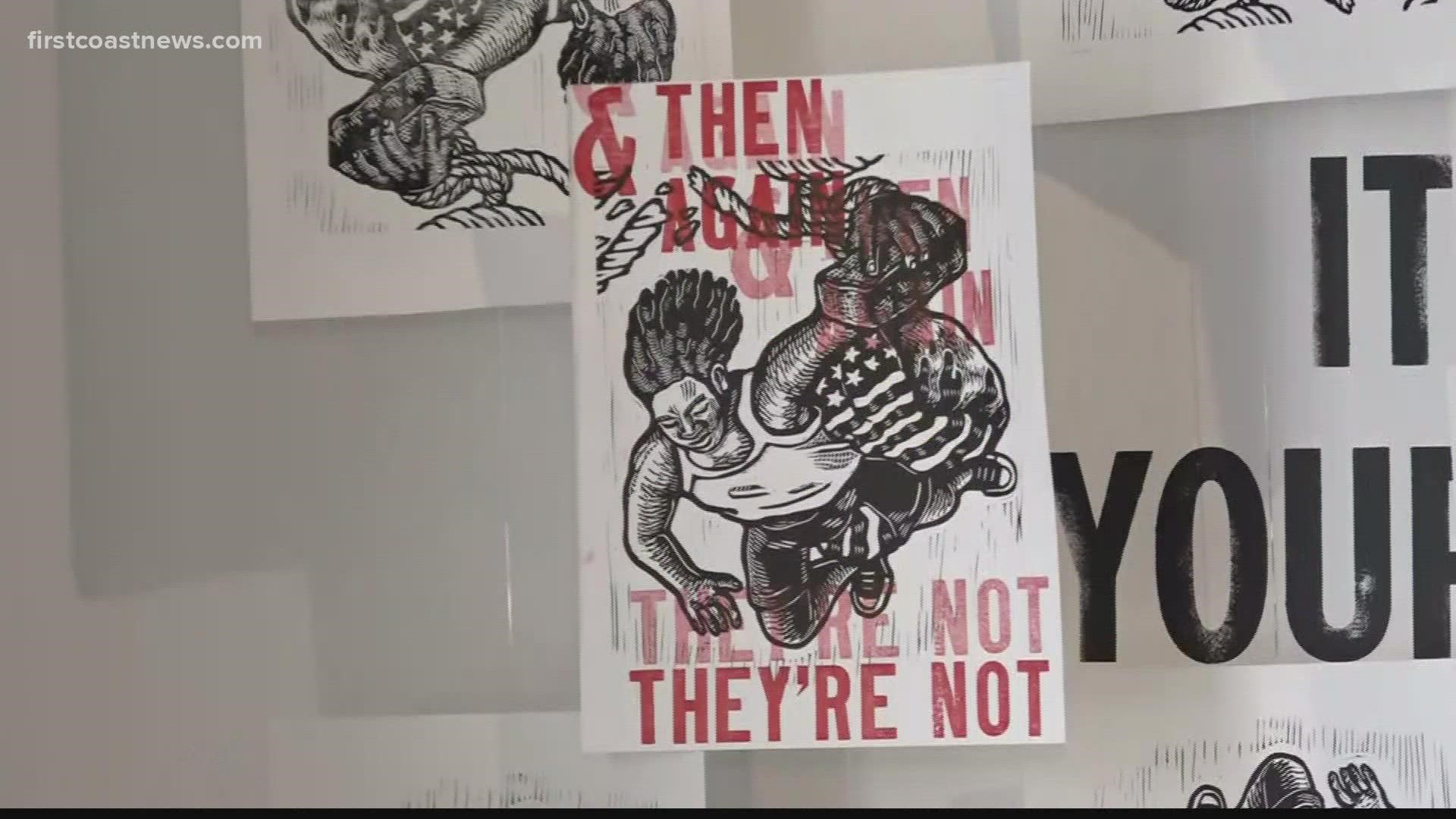JACKSONVILLE, Fla — A Jacksonville art exhibit confronting America's racial history and how far we have and haven't come takes on a new light with the recent passage of a federal anti-lynching law.
Once the president signs it, lynching will for the first time be a federal hate crime in the U.S. This comes after an anti-lynching bill failed 200 times over more than a century.
Inside Yellow House Art Space and Gallery, a new exhibit takes on lynching as its focus.
The topic is extremely heavy and hard to talk about -- and that's the point. The exhibit drives the point home that lynching isn't something that happened far away; it happened in places locals may drive by every day. The art makes it personal.
"It's really intended to shine a light on the history of lynching, specifically in Duval County," said Hope McMath, founder and director of Yellow House. "Also the ripple effects that it has had over time."
The exhibit is called "Screams Echo: The Legacy of Lynching." Local artists including Deja Echols, Erin Kendrick, Marsha Hatcher and writer Bobbie O’Connor have contributed to it.
"I wanted to make work that really embodies, when you look at it, it's not just some random person, but that could be anyone that you know," said Echols, standing beside her work.
In one of the first rooms you enter, there is an altar with stones on it. The stones have the faces of victims of racial violence drawn on them in colored pencil by artist Marsha Hatcher. On the top shelf of the altar sit jars with soil collected from the sites where men were lynched in Jacksonville.
"Lynching is one of those things in our history that has left some open wounds," McMath said. "Through this exhibit we've invited literary and visual artists to help us understand why this matters and also give us ways to sort of enter this uncomfortable conversation."
Florida had more lynchings per capita than any other state except Mississippi, according to the Equal Justice Initiative. The exhibit takes visitors through the history and horrors of lynching as well as redlining and more modern forms of racial oppression.
"I use my younger brother as a model for a lot of things," Echols said.
For Echols, her art and activism is personal. Her models are her family. Her subject is lynching.
"I just had this overwhelming fear that something could happen to [my brother]," she said. "Anything could happen. Based on what we've seen in the news, even just going for a jog. The more that I create these pieces, the more I understand that that's not in my control. I just kind of have to let him go and really do what I can. And in essence that is creating work that really shows to other people, it's not just me that has these fears."
In the work inside the exhibit, art and activism unite.
"I can't bring these men back," McMath said. "I can't solve the larger systemic issues that exist that create the environment in which lynching was and still is possible. But I can do what I can do in the little corner of the world that I inhabit with what I have."
"Yes, we talk about these lynchings," said Echols. "Yes, we see these terrible things happening in the news. But now let's do something about it."
As her art reads: "It's in your hands."
You have until April 16 to see the exhibit at Yellow House. Read more about the exhibit here.

